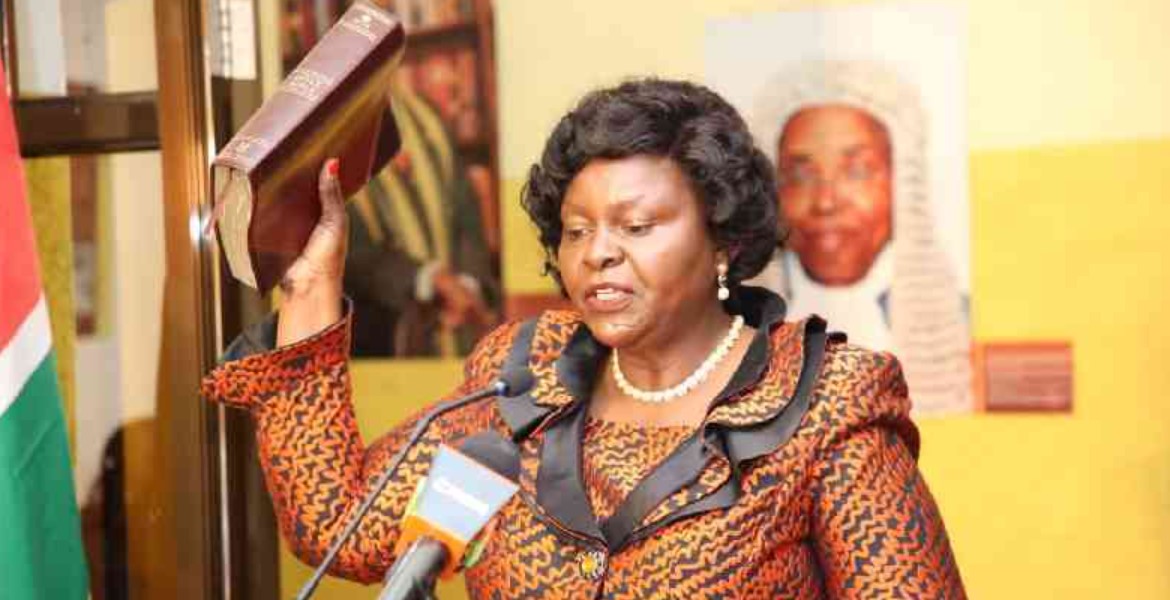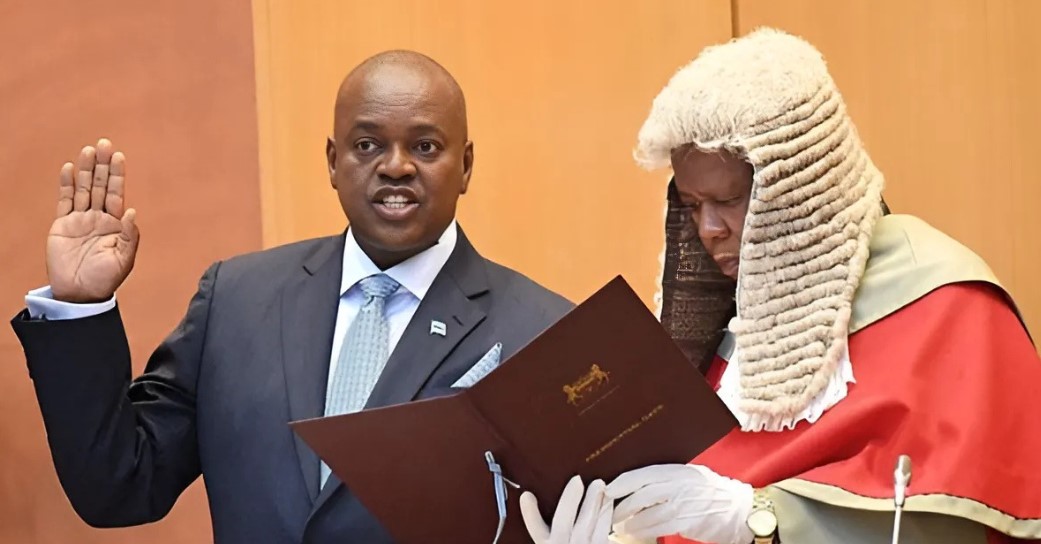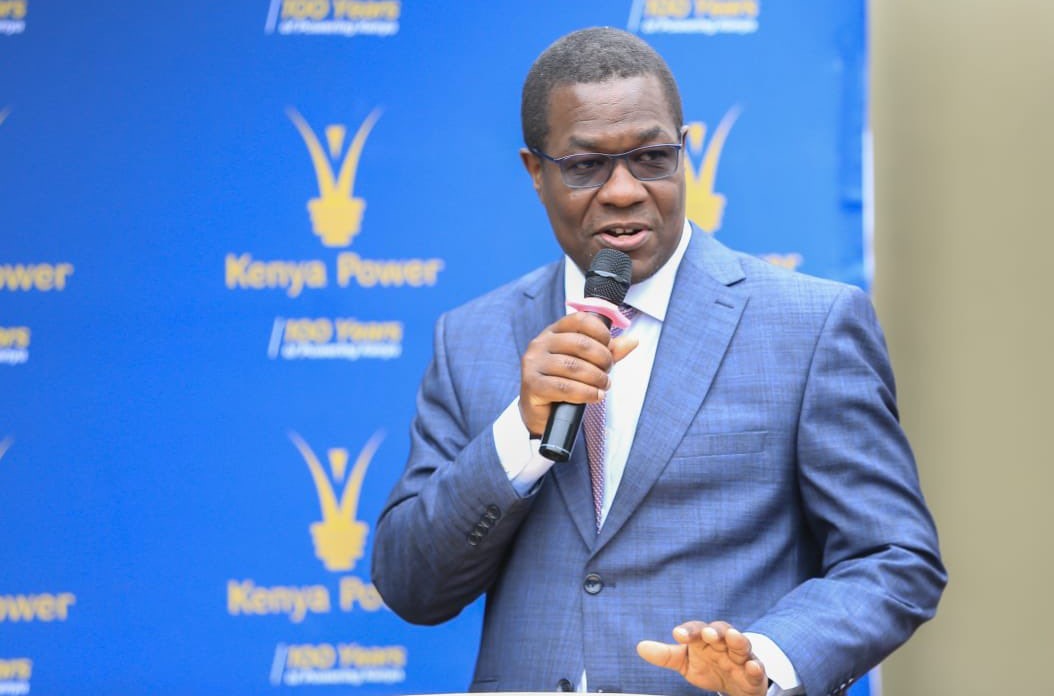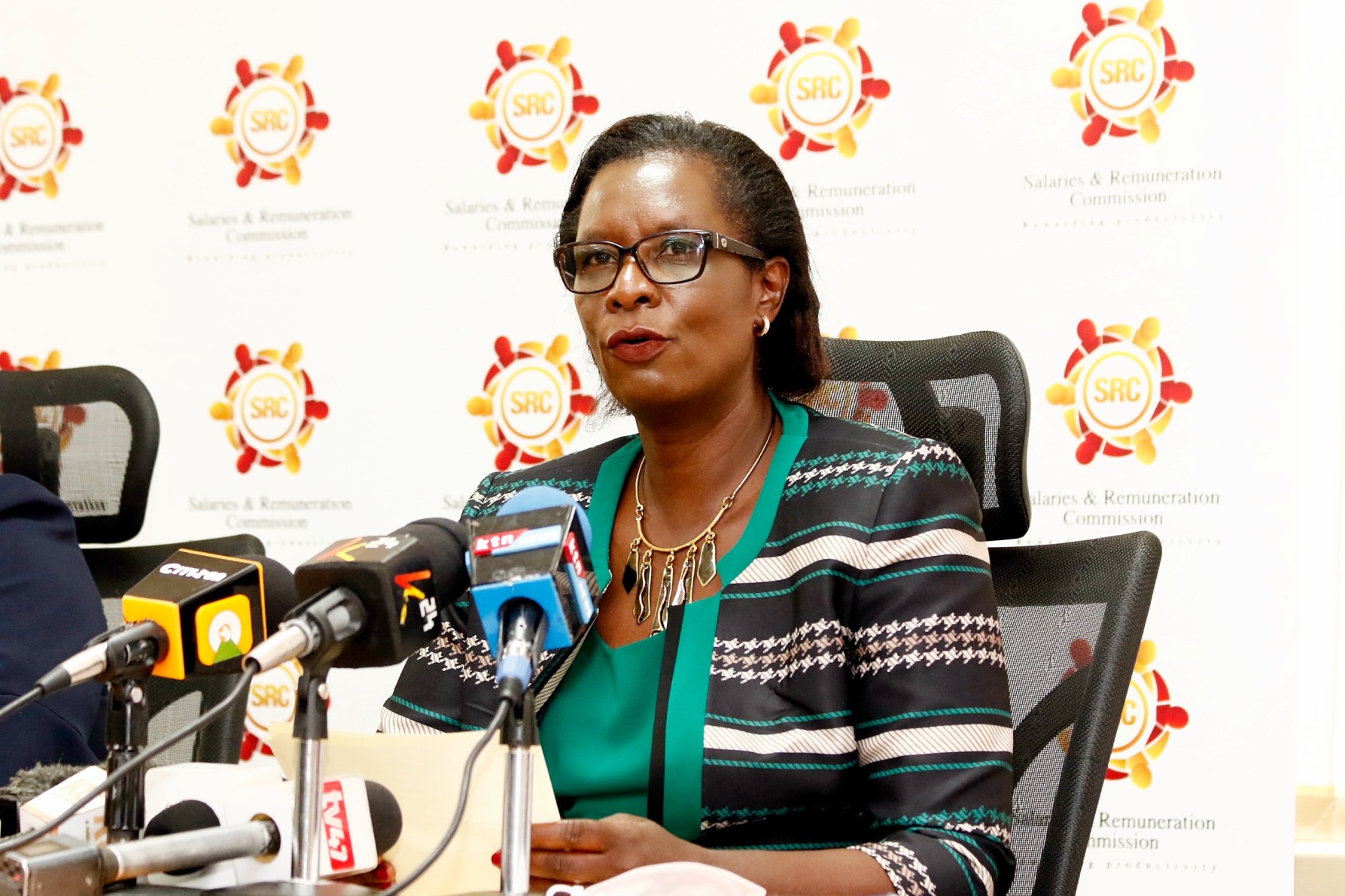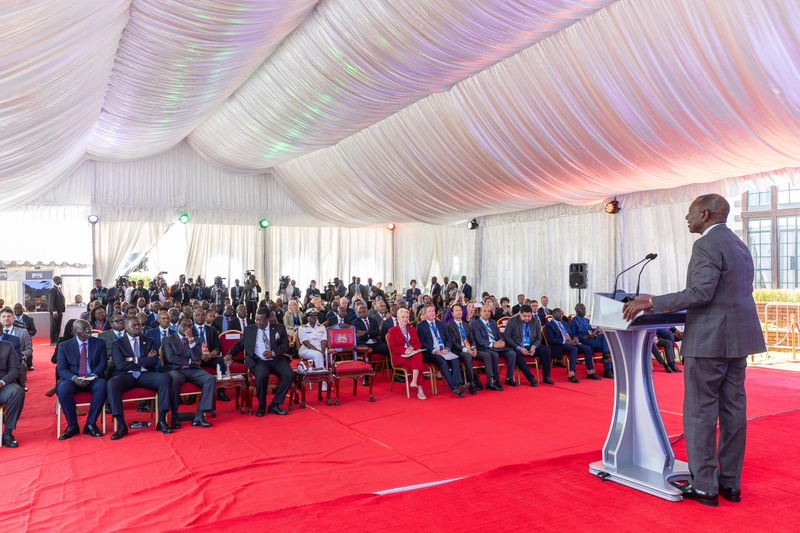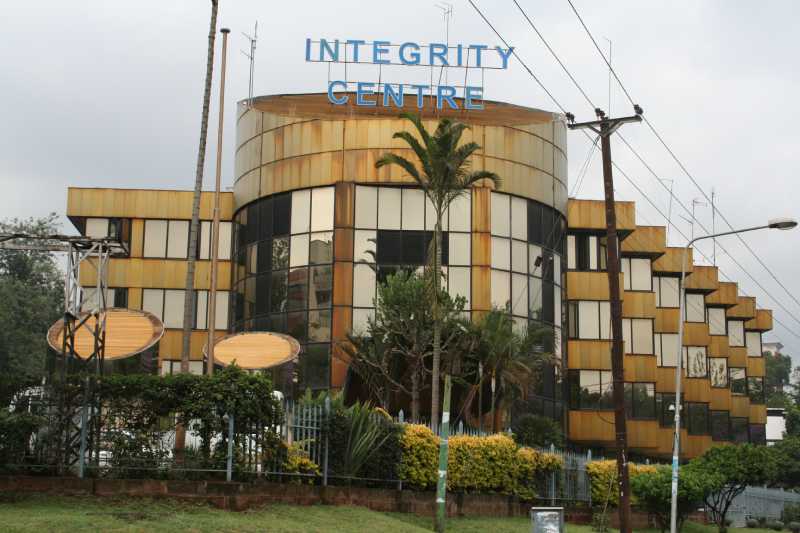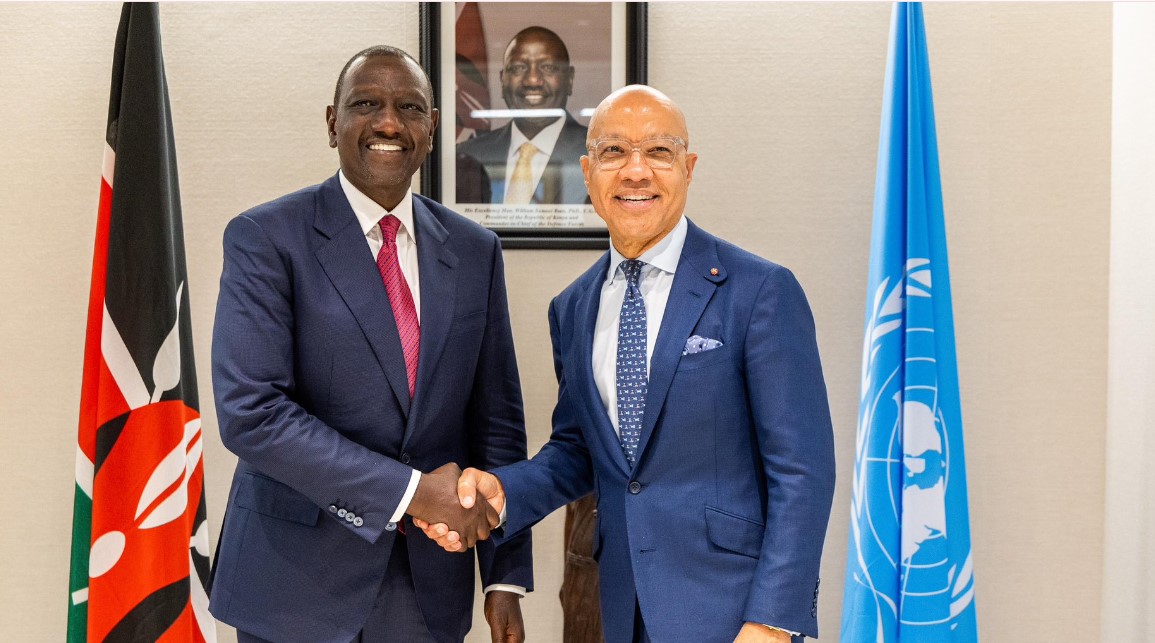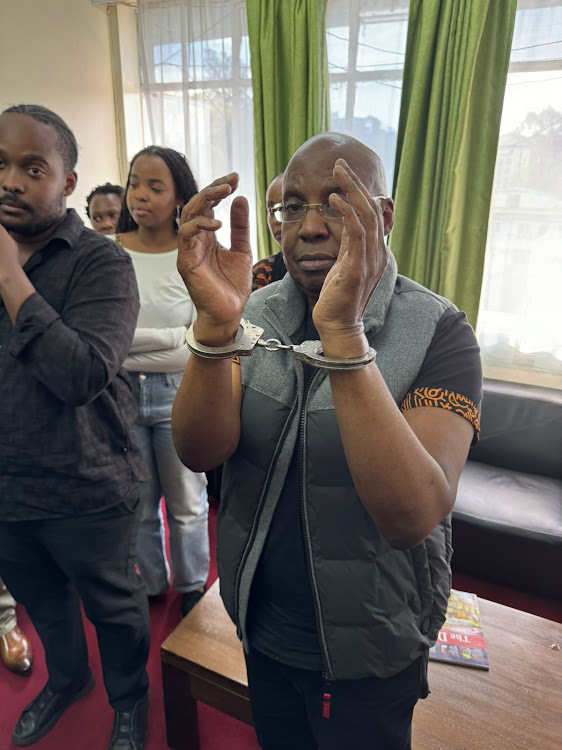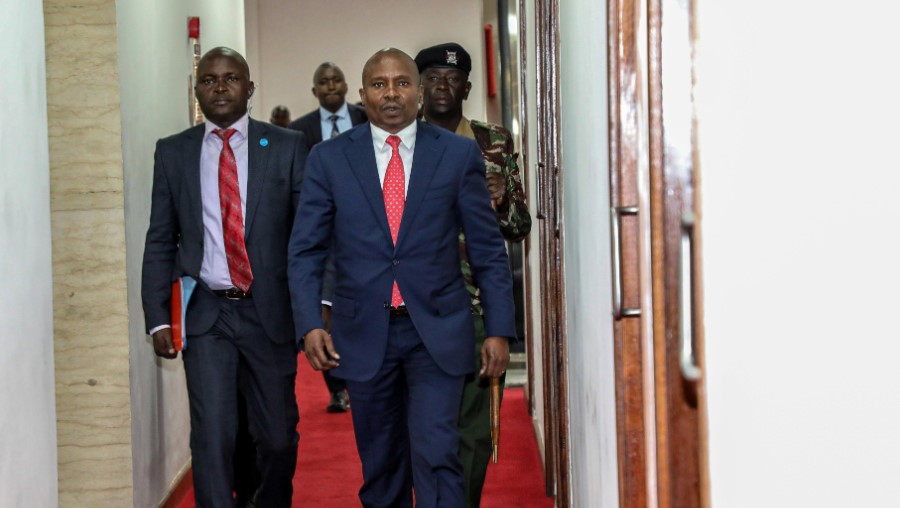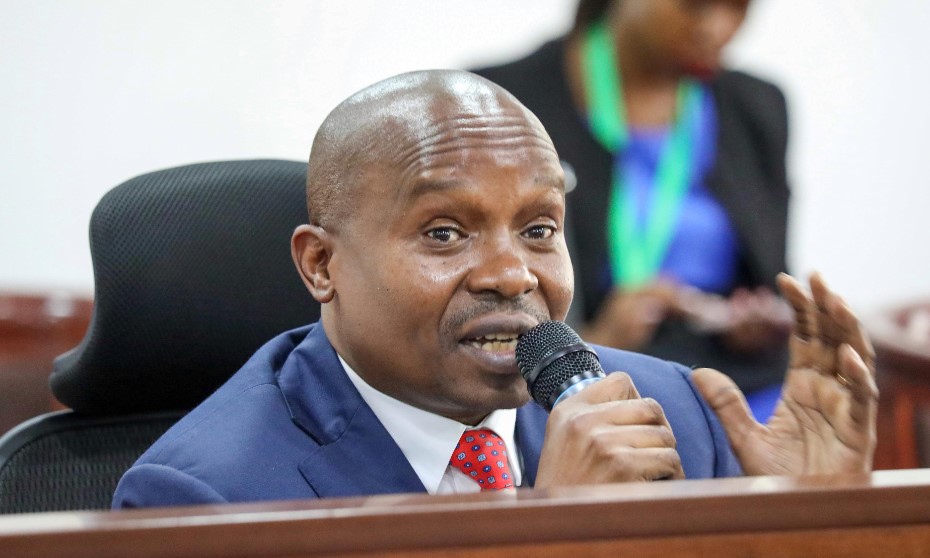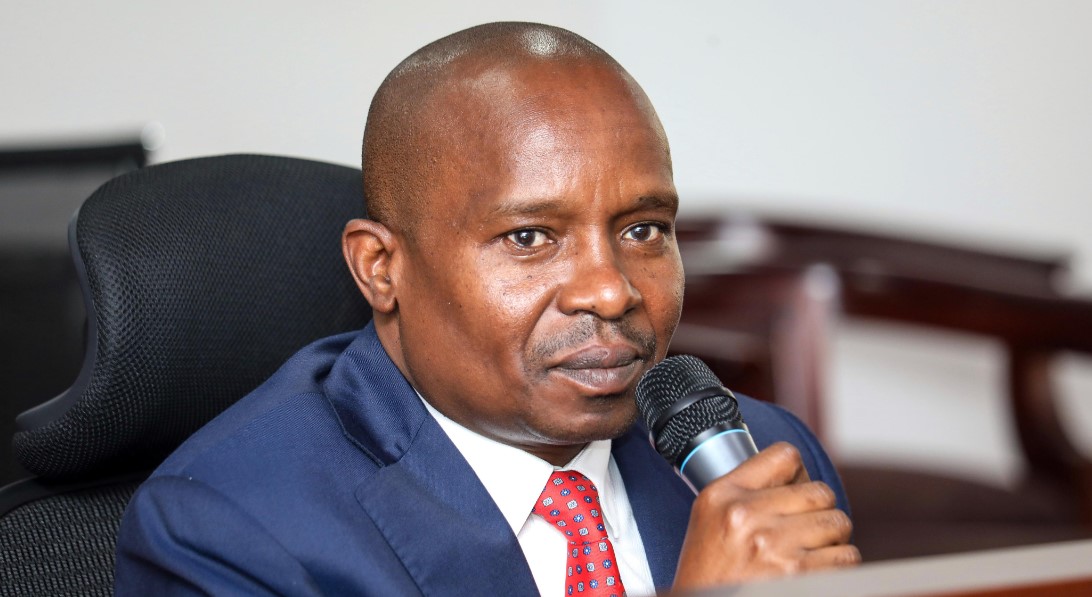Govt invites public feedback on Bill proposing Sh15m fine for damaging critical infrastructure
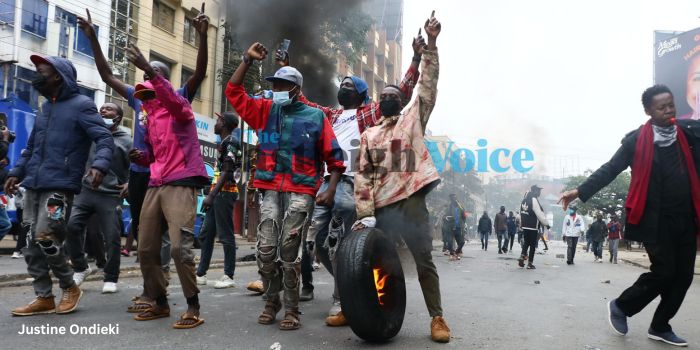
By Lucy Mumbi |
“Any person who commits such an offense shall be liable to a fine of not more than fifteen (15) million shillings or imprisonment for a term not exceeding 15 years, or to both," reads the Bill.
Kenyans have been invited to give their feedback on the Draft Critical Infrastructure Protection Bill, 2024, which seeks to enhance the security of vital installations across the country.
The Bill, developed by the Ministry of Interior and National Administration, aims to establish a national framework for the protection of critical infrastructure and ensure the coordination of all stakeholders involved in safeguarding these key assets.
Keep reading
- IG Kanja directs Internal Affairs Unit to replace arbitrarily transferred officers
- Governor Guyo grilled by Senate, slapped with Sh500,000 fine for failing to honour summons
- Activists decry restricted access to Uhuru Park ahead of planned event to honour anti-govt protest victims
- It's not easy! Former Health CS Nakhumicha opens up about struggles after dismissal
The Bill has proposed stringent penalties for damaging critical infrastructure, whether privately or publicly owned, that is designated as essential under this Act for providing vital services to Kenyans' social and economic well-being.
It notes that if such infrastructure is destroyed, degraded, or rendered unavailable, it could harm the nation’s social or economic stability or compromise Kenya’s ability to maintain national defense and security.
According to the Bill, Individuals found guilty of vandalising or destroying such infrastructure could face up to 15 years in prison or fines of up to Sh15 million. This includes damage during protests in Nairobi or other major towns.
Other offenses include vandalism, theft, or damage to assets. It will also be illegal to erect structures over underground infrastructure, such as power cables, oil, gas, and water pipelines, as well as communication cables. Dumping materials that could compromise the safety and operation of critical infrastructure is also prohibited.
“Any person who commits such an offense shall be liable to a fine of not more than fifteen (15) million shillings or imprisonment for a term not exceeding 15 years, or to both," reads the Bill.
It adds that anyone who attempts, threatens, conspires, aids, or incites others to commit the acts specified under section 34 will face the same penalties.
To support the identification and designation of critical infrastructure, the Bill proposes establishing a National Critical Infrastructure Protection Committee. This committee would be tasked with identifying and designating critical infrastructure, managing a national database of such assets, and coordinating protection efforts.
Committee members
The Committee shall be composed of several key officials, including the Internal Security Principal Secretary, who will serve as the chairperson. Other members will include Defense PS, Information, Communications, and Technology PS, and the PS in the Ministry responsible for Finance.
Additionally, the Solicitor General, the Chief of the Kenya Defense Forces, the Inspector General of the National Police Service, the Director General of the National Intelligence Service, and the Director appointed under section 13, who will act as the Secretary to the Committee, will also be part of the Committee.
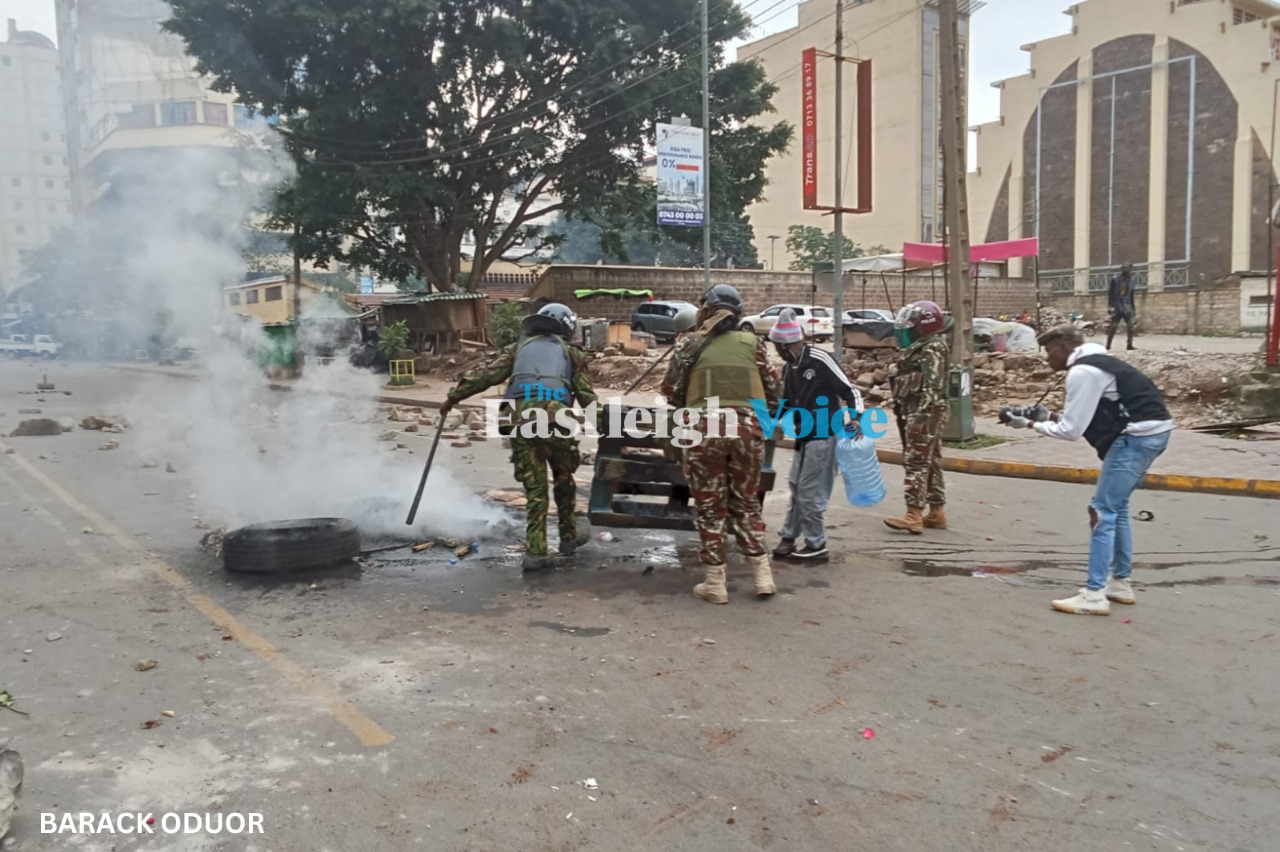 Police officers clear debris erected by protesters along Koinange Street in Nairobi. (Photo: Barack Oduor/EV)
Police officers clear debris erected by protesters along Koinange Street in Nairobi. (Photo: Barack Oduor/EV)
"The members of the Committee shall be paid such allowances, as the Cabinet Secretary shall determine in consultation with the Salaries and Remunerations Commission," reads the Bill.
The Bill notes that public or private entities may request the Committee to designate their assets or facilities as Critical Infrastructure Assets.
In making these designations, the Committee will assess the value of the services provided by the assets or facilities and determine if these services are essential to the social and economic well-being of Kenyans. It will also evaluate the potential impact on the country if the assets are destroyed, degraded, or rendered unavailable and their importance to national defense and security.
However, before designating an asset or facility as critical, the Committee will consult with its owners or operators by issuing a written notice. This notice will outline the proposed designation and invite the entity to make submissions within 28 days.
The Committee will consider any submissions made within this period. If a designation is confirmed, the Committee will issue a declaration in the Kenya Gazette.
The draft highlights the need to safeguard critical installations, including those in Nairobi and other major towns, through continuous security surveillance.
The Bill also outlines the process for expanding the list of protected areas, which are to be classified as critical installations. These areas, including places like parliament, State House, army barracks, airports, and state lodges, will receive ongoing security protection.
The Bill emphasises that critical infrastructure must be protected from threats such as terrorism, vandalism, espionage, and the illegal handling of stolen infrastructure components. Owners of such infrastructure will be required to submit security plans to the Committee for review and approval.
County governments will also play a role in identifying and proposing assets within their regions that meet the criteria for designation as critical infrastructure. These proposals will be submitted to the Committee, along with necessary information and maps.
The Bill has also laid down penalties for anyone who hinders, obstructs, or interferes with a critical infrastructure owner, or their authorised representatives, from accessing land to carry out activities such as laying, connecting, repairing, inspecting, or removing critical infrastructure.
According to the Bill, such interference would be considered an offense and could result in a fine of up to Sh100,000 for each day the obstruction occurs or continues.
“Any person found obstructing critical infrastructure work could face hefty fines, amounting to Sh100,000 per day of interference,” reads the Bill.
The public’s views on these proposals are to be submitted through the Principal Secretary’s office at Harambee House in Nairobi.
Members of the public and stakeholders can also submit their comments by hand to the Principal Secretary, State Department for Internal Security and National Administration at Harambee House, Nairobi, or via email to [email protected] before October 22, 2024.
Reader comments
Follow Us and Stay Connected!
We'd love for you to join our community and stay updated with our latest stories and updates. Follow us on our social media channels and be part of the conversation!
Let's stay connected and keep the dialogue going!

